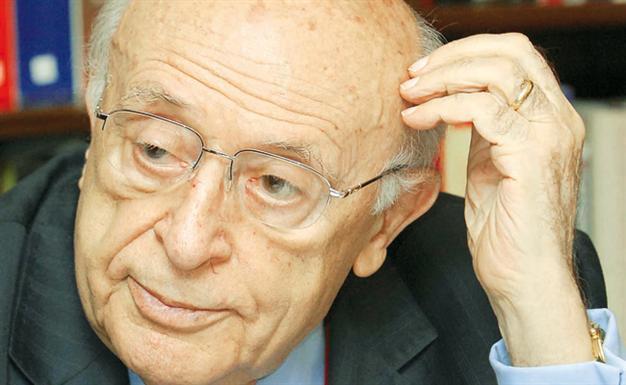Coup inquiry panel set to hear Demirel
ANKARA - Hürriyet Daily News

Parliament’s coup panel to listen ex-President Demirel at his Ankara home. DAILY NEWS photo, Selahattin SÖNMEZ
Parliament’s coup inquiry commission will meet with former President Süleyman Demirel on June 7 to hear his accounts of past military interventions.According to the panel, the meeting will take place in Demirel’s residence with the participation of the members of the sub-commissions tasked with separately investigating the 1960, 1971, 1980, 1997 and 2007 military interventions.
“To avoid any current or possible misunderstandings in the public, our commission has no authority to get testimonies. The commission is tasked with hearing witnesses who have information on the issues to be investigated by it,” according to a written statement from Parliament’s coup inquiry commission.
Demirel is considered a key name by the commission because he held top positions during military interventions. He was ousted twice from the prime minister’s seat by the army, first during the March 12, 1971, coup and later during the Sept. 12, 1980, coup. The former president was placed under house arrest on the morning of the 1980 coup before subsequently receiving a 10-year ban from politics.
As Turkey’s ninth president, Demirel also headed the infamous National Security Council (MGK) meeting held on Feb. 28, 1997. The meeting marked the start of the “Feb. 28 process,” which refers to a harsh army-led campaign that forced Turkey’s first Islamist prime minister, Necmettin Erbakan, to resign in June 1997, after serving just a year in office.
At the MGK meeting, Turkey’s then-omnipotent military imposed a series of tough secularist demands on Erbakan that were aimed mainly at curbing Islamic education in the face of what was perceived to be a growing threat to Turkey’s secular system.
The coup inquiry panel has also sought meetings with Rahşan Ecevit, wife and lifetime political companion of late Prime Minister Bülent Ecevit; veteran politicians Hüsamettin Cindoruk and Ahmet İşvan, as well as Numan Esin and Ahmet Er, surviving members of the group that led the 1960 military coup.
















